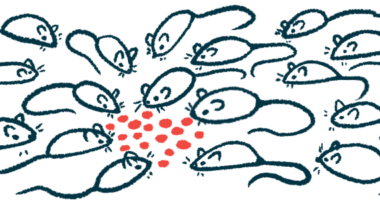Amicus and Paragon Working to Advance Potential Gene and Other Therapies for Rare Diseases Like Pompe

Amicus Therapeutics announced that it has entered into a manufacturing agreement with Paragon Bioservices to drive the development of technologies, including gene therapies, now in preclinical testing for the treatment of rare genetic disorders like Pompe disease.
These include a series of lysosomal disorder programs, jointly developed by Paragon (now part of Catalent Biologics) and the University of Pennsylvania. Lysosomal disorders are diseases that affect the normal function of lysosomes — small, specialized cell compartments that digest and recycle different types of molecules. These also include, for instance, Sanfilippo syndrome, Batten, Fabry and Gaucher disease.
The University of Pennsylvania has transferred technology rights to Paragon in the past, and agreed to collaborate with Amicus throughout the development process, the company reported in a news release.
In addition, the collaboration between Amicus and Paragon will focus on the development of a manufacturing platform for adeno-associated viruses (AAVs) that are currently used as delivery vectors in most gene therapies, and on the establishment of a new gene therapy program for Pompe disease.
Amicus already has agreements with other companies that produce plasmids — small circular DNA molecules frequently used in genetic engineering to drive the activity of certain genes of interest — and said it has established a long-term supply network of these molecules to advance the gene therapy programs currently in its pipeline.
“As we continue to articulate our near- and long-term Amicus gene therapy manufacturing strategy, our collaboration with Paragon Bioservices is a significant next step in securing clinical scale-up and supply for our Pompe gene therapy, as well as our other active preclinical programs,” John F. Crowley, chairman and chief executive officer of Amicus, said in the release.
“Advancing a robust manufacturing process and supply is critical to our success. Leveraging our internal expertise and process development in combination with Paragon’s expertise and platform capabilities we hope to expedite the process of moving our preclinical gene therapy programs into the clinic as quickly as possible,” Crowley added.
Amicus and the University of Pennsylvania recently expanded an existing relationship to cover six gene therapy programs, working toward therapies that might treat or possibly cure diseases like Pompe, Fabry, and Sanfilippo.
Meanwhile, a randomized and double-blind global Phase 3 trial (NCT03729362), called PROPEL, is assessing the safety and efficacy of Amicus’ combination therapy AT-GAA in adults with late-onset Pompe disease. It aims to enroll up to 100 people who have taken enzyme replacement therapy (ERT) with alglucosidase alfa or who are ERT naive, and compare 12 months of treatment with AT-GAA to that of alglucosidase alfa plus an oral placebo. The study, which plans for an open-label continuation trial for those who complete PROPEL, is now recruiting eligible patients at sites across the U.S., Europe, Canada and elsewhere; more information is available here.
AT-GAA consist of a man-made optimized acid alpha-glucosidase (GAA) enzyme — which is faulty in Pompe disease — co-administered with an oral small molecule that works as a pharmacological chaperone.
The U.S. Food and Drug Administration designed AT-GAA a breakthrough therapy in February, a recognition that helps to support and speed its development. The designation was the first given to an investigational treatment for Pompe disease by the regulatory agency.






